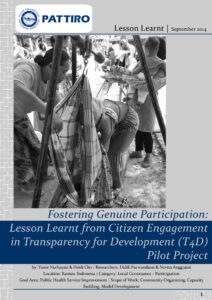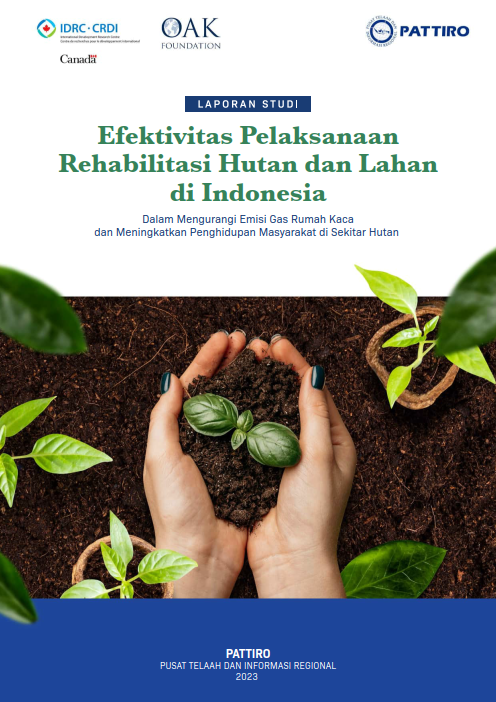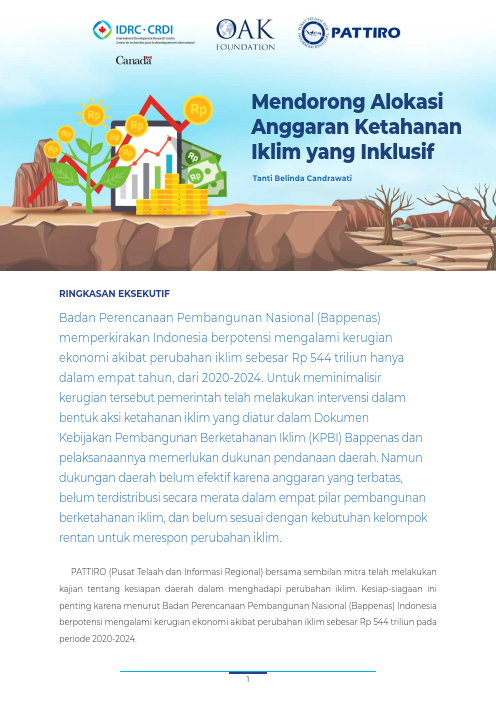 One of the biggest health challenges in Indonesia is maternal and newborn health. Child mortality rates in poor peri-urban areas are much higher than the urban average. A 2012 study by UNICEF found that child mortality rates are five times higher in Jabodetabek’s poor peri-urban sub-districts. As the nearest peri-urban area to Jakarta, Banten province was found to suffer from the fourth highest provincial maternal and neonatal mortality rates, whilst also suffering from a lack of health resources (Ministry of Health, 2011). Furthermore, many of the problems that led to poor maternal and neonatal health can be found at the community or infrastructural level (AIPMNH, 2011). For such issues, the application of social accountability is a potential solution for identifying problems and advocating for solutions through the citizen engagement (CDC, 1997). It is for that reason that the first Transparency for Development (T4D) pilot conducted by the Harvard Kennedy School and the Results for Development Institute, in collaboration with PATTIRO, focused on fostering community participation to develop and implement collective action to respond to MNH problems within their neighborhood.
One of the biggest health challenges in Indonesia is maternal and newborn health. Child mortality rates in poor peri-urban areas are much higher than the urban average. A 2012 study by UNICEF found that child mortality rates are five times higher in Jabodetabek’s poor peri-urban sub-districts. As the nearest peri-urban area to Jakarta, Banten province was found to suffer from the fourth highest provincial maternal and neonatal mortality rates, whilst also suffering from a lack of health resources (Ministry of Health, 2011). Furthermore, many of the problems that led to poor maternal and neonatal health can be found at the community or infrastructural level (AIPMNH, 2011). For such issues, the application of social accountability is a potential solution for identifying problems and advocating for solutions through the citizen engagement (CDC, 1997). It is for that reason that the first Transparency for Development (T4D) pilot conducted by the Harvard Kennedy School and the Results for Development Institute, in collaboration with PATTIRO, focused on fostering community participation to develop and implement collective action to respond to MNH problems within their neighborhood.
During 6 (six) months of project implementation, there was a significant improvement in community participation in and awareness of MNH issues. Major improvements included an increase in awareness of MNH problems within the communities, which further brought out a sense of urgency to take necessary action and a shift towards considering MNH as a collective responsibility. By the conclusion of the pilot program, several villages were successful in sustaining and increasing participation. Others were not as successful, largely as a result of community activists’ (CA) lack of interest in the issue or conflict among them. Inevitably, CAs sense of volunteerism, leadership, and responsibility were characteristics that magnified project success.
Accordingly, there were four main lessons throughout the process of the T4D pilot project: 1) the need to leverage citizen engagement as a process of building community capacity, 2) need to strengthen community capacity to be able to access resources, 3) need to strengthen the social capital to enhance effective participation, 4) need to combine the ‘inward’ and ‘outward’ approach to build social accountability.
There were, however, several significant challenges beyond the T4D control, including: 1) lack of government resources and support, 2) the politics related to the heads of villages, 3) mistrust of CSOs and NGOs and 4) individual family interests brought conflicts to the program. Moreover, in terms of sustainability, the program needs to undertake more careful consideration in selecting new community activists. Consequently, additional informal meetings and supplementary training for CAs is needed. In addition, a better recording system to monitor villages and the establishment of a new instrument to track wider territorial network is recommended, as the program will be scaled-up territorially.




